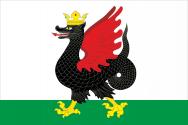Oblomov - a passive protest against the surrounding evil (based on the novel by I. A
Subject. Oblomov and Oblomovism. Reasons for Oblomovism.
Lifestyle, which is characterized by laziness, apathy, inability to solve problems, empty daydreaming, defined in the novel by the word "Oblomovism". This concept has become a household word.
Oblomoschina's roots go back to the family nest of Ilya Ilyich. In Chapter 9 of the 1st part of the novel, the reasons for Oblomovism are revealed (“Oblomov’s Dream”).
Reasons for Oblomovism
1. The upbringing and formation of peace took place in conditions of deadening peace:
(“Nothing is needed: life, like a calm river, flowed past them; they could only sit on the bank of this river and observe the inevitable phenomena that, in turn, without a call, appeared before each of them.
"TPeace and imperturbable calm reign in the morals of the people in that region. No robberies, no murders, no terrible accidents happened there; neither strong passions nor daring undertakings excited them")
a) primitive life, absence of any high life goals;
“Oblomovites believed poorly in spiritual anxieties. They never confused themselves with any vague mental or moral questions."
“Caring for food was the first and main concern of life in Oblomovka.”
b) superstitious fears and fear of new things.
The episode with receiving the letter - fear of new things
“In Oblomovka they believed everything: werewolves and the dead. If they tell you that a haystack was walking across the field, they will believe it; “If anyone hears a rumor that it is not a ram, but something else, or that Marfa or Stepanida is a witch, they will be afraid of both the ram and Martha ... - so strong is the faith in the miraculous in Oblomovka”
“For them, death happened from a dead person who had previously been carried out of the house with his head, and not with his feet from the gate; the fire was caused by a dog howling outside the window for three nights..."
2. Negative example of parents:
a) the estate fell into disrepair;
(Nobody takes care of the housekeeping, the manager steals, the rotten gallery stands until it collapses, the bridge is laid only when the peasant falls from it into the ditch They were stingy, they never spent an extra penny even on candles
“So why [the porch] was shaking? - answered Oblomov. - But it didn’t fall apart, even though it’s been sixteen years without correction...
ANDhe turned his eyes in the other direction, and the porch, they say, is wobbly and has not yet fallen apart")
b) inactivity of parents;(Father never bothered himself with anything)
“The boy is used to seeing how his father, all day long, only knows that he walks from corner to corner, with his hands behind him, sniffing tobacco and blowing his nose, while his mother moves from coffee to tea, from tea to dinner.”
Oblomov himself is an old man who is also not without his activities. He sits by the window all morning and strictly monitors everything that happens in the yard.
- Hey, Ignashka? What are you talking about, fool? - he will ask a person walking in the yard.
“I’m taking the knives to the servants’ room to sharpen,” he answers without looking at the master.
- Well, bring it, bring it; yes, look, sharpen it well! Then he stops the woman:
- Hey, grandma! Woman! Where did you go?
“To the cellar, father,” she said, stopping and, covering her eyes with her hand, looked at the window, “to get milk for the table.”
- Well, go, go! - answered the master. - Be careful not to spill the milk.
- And you, Zakharka, little shooter, where are you running again? - he shouted later. - Here I will let you run! I already see that this is the third time you are running. I went back to the hallway!
And Zakharka went into the hallway again to doze. When the cows come from the field, the old man will be the first to make sure they are given water; If he sees from the window that a mongrel is chasing a chicken, he will immediately take strict measures against the riots.
c) Not a serious attitude towards the education of parents, and therefore of Ilya himself. Parents protected Ilyusha from excessive studies in science.
(“Everyone in the house was imbued with the conviction that schooling and parental Saturday should in no way coincide together, or that the holiday on Thursday is an insurmountable barrier to learning for the whole week.” How long before sin? - said father and mother. “Study is something won’t go away, but you can’t buy health...”
“You can’t go today; There’s a big holiday on Thursday: is it worth traveling back and forth for three days?”, “...today is parent’s week, no time for studying: we’ll bake pancakes,” “Somehow your eyes are stale today. Are you healthy?... Just sit at home this week, and then see what God wills.”
The old people understood the benefits of enlightenment, but only the external benefits. “They dreamed of an embroidered uniform for him, imagined him as a councilor in the chamber, and even his mother as a governor; but they would like to achieve all this somehow cheaper, with various tricks... not with difficulty"
3. Unsuitability for work“Everything was done for him by Zakhar and three hundred other Zakhars”…. (“If Ilya Ilyich wants anything, he only has to blink - three or four servants rush to fulfill his desire...”.
“Zakhar, as a nanny used to do, pulls on his stockings, puts on his shoe, and Ilyusha, already a fourteen-year-old boy, only knows that he is lying down first one leg, then the other...”)
4. Suppression of independence. Excessive care of parents and nannies.
(“And the whole day and all the days and nights of the nanny were filled with turmoil, running around: now torture, now living joy for the child, now the fear that he would fall and break his nose...”
"Nanny! Don't you see that the child ran out into the sun? Take him into the cold; If it hurts his head, he will hurt, feel nauseous, and won’t eat...”
“What are you, God bless you! Now it’s damp to walk, your legs will get cold; and it’s scary: now there’s a goblin walking in the forest, he’s carrying away little children.”
“Sometimes he... wants to rush in and redo everything himself, and then suddenly his father and mother and three aunts shout in five voices: “Why?” Where? And what about Vaska, and Vanka, and Zakharka?)
5. Limiting children's curiosity and inquisitive mind.
(“Then the mother let him go for a walk in the garden, around the yard, in the meadow with strict confirmation to the nanny not to leave the child alone, not to let him near horses, dogs, or a goat, not to go far from the house, and most importantly, not to let him into the ravine.” ..
Nanny's tales - escapism
“She whispers to him about some unknown side, where there are neither nights nor cold, where miracles happen, where rivers of honey and milk flow, where no one does anything all year round, and all day long they only know that everyone is walking. good fellows, such as Ilya Ilyich, and beauties that cannot be said in a fairy tale or described with a pen.”
“Nanny or legend so skillfully avoided in the story everything that actually exists that the imagination and mind, imbued with fiction, remained in his slavery until old age. The nanny with good nature told the tale of Emel the Fool, this evil and insidious satire on our great-grandfathers, and perhaps also on ourselves.”
“The boy’s imagination was filled with strange ghosts; fear and melancholy settled into the soul for a long time, perhaps forever. He sadly looks around and sees everything in life as harm, misfortune, everything dreams of that magical side where there is no evil, troubles, sorrows, where Militrisa Kirbityevna lives, where they feed and clothe so well for nothing...")
|
The fruits of education |
|
|
Closedness from real life, limited aspirations, excessive parental care, the desire to protect the child from all problems gave rise to apathy and laziness, cowardice and selfishness in Oblomov. |
|
|
1. Reluctance to complete educational tasks. (How did Oblomov perceive the assigned lessons while studying at the Stolz boarding school? Did he show interest in studying? How did he feel about reading?) |
He, of necessity, sat in class... and with difficulty, with sweat, with sighs, he learned the lessons assigned to him. ...considered it a punishment sent by heaven for our sins. Serious reading tired him. But the poets touched him to the quick... |
|
2. Studying at the University of Moscow, awakening noble aspirations, but “the flower of life blossomed and did not bear fruit.” (What were these noble dreams of Oblomov? - Chapter 5; Chapter 4, part 2) |
“serve as long as you can, because Russia needs hands and heads to develop inexhaustible sources; to work so that you can rest more sweetly, and to rest means to live the other, artistic, graceful side of life, the life of artists and poets.” ...after reading books I wanted to travel around foreign lands in order to know and love my own better |
|
3. Unsuccessful attempt at service, fear of problems, unwillingness to solve them. (Why did you stop going to work?) |
He once sent some necessary paper instead of Astrakhan to Arkhangelsk. Oblomov did not wait for the well-deserved punishment, went home and sent a medical certificate. But this helped only for a while: he had to recover, and after that, in the long term, he again had to go to office every day. Oblomov could not bear it and resigned. |
|
4. Inaction and empty dreams of transformation and a happy, carefree life. (What was the usual, everyday “work” of Ilya Ilyich Oblomov?) |
He has been working tirelessly on a plan for several years, thinking, reflecting, both walking and lying down... As soon as he gets out of bed in the morning, after tea, he immediately lies down on the sofa, props his head on his hand and thinks, sparing no effort, until finally , the head becomes tired from hard work and when the conscience says: enough has been done today for the common good. Only then does he decide to take a break from his work and change his caring posture to another, less businesslike and strict, more convenient for dreams and bliss. Freed from business concerns, Oblomov loved to withdraw into himself and live in the world he created. |
|
How does stagnation manifest itself? |
|
|
- negative attitude towards work; |
Oblomov despises work. Labor and punishment are synonymous for him. |
|
— negative attitude to educate the people; |
“Literacy is harmful to a peasant: teach him, and he probably won’t even start working.” |
|
- fear of changes in the economy. |
Oblomov was frightened by Stolz’s proposal to build a highway to Oblomovka, build a pier, and open a fair in the city. |
Quite often in our time you can hear the word “Oblomovism”, although it is not always used in the correct meaning. And even though the novel “Oblomov” - thanks to whose hero of the same name this expression was formed - was written back in the 19th century, the name “Oblomoshchina” is still used. We can conclude that the problem reflected by these concepts “Oblomov” and “Oblomovshchina” is still relevant today. So what does Goncharov’s novel tell us, and what is “Oblomovshchina”?
This novel tells the story of a young landowner Ilya Ilyich Oblomov, who lives in St. Petersburg and practically never gets up from his couch.
We are shown a picture of stagnation and laziness in his life: main character does not engage in any activities, practically does not go out into the world and only indulges in thoughts about how to live, dreams of a cozy, serene life in his native estate, Oblomovka. No problems in this Oblomovka, no reproaches best friend Stolz's childhood cannot help him get rid of apathy. In the novel, the word “Oblomovshchina” was used by both, and meant precisely this detachment and at the same time utopia in the soul of Ilya Ilyich. But besides this, he is an honest, open person, capable of deep feelings. Oblomov has a pure, kind heart and does not accept lies along with pure materialism - the property of guests who periodically visit him in St. Petersburg. Each of them, talking about their activities and problems, represents one or another version of an active life, which is offered to the hero instead of lying on the couch, but Oblomov is not at all attracted to either a career or the satisfaction of human passions and vices, because he sees in them only useless vanity - his soul requires something sublime and beautiful, for which it is worth getting off the couch. These two character traits of the hero - on the one hand, a pure heart, inner freedom, and on the other, laziness and detachment - interpenetrate and complement each other: Oblomov dreams of an ideal life without problems, where you can do nothing and not care about anything. This consciousness was formed in him from childhood, which passed in his native village thanks to the serf system, in which the master did not need to do anything himself in order to get what he wanted. The fairy tales he grew up with reinforced Ilya Ilyich’s belief that someone else could always solve his problems.
It was precisely this way of life of Oblomov that was first called “Oblomovism” by Stolz. This concept is subject to Russian people both in the time of Goncharov and in our days. Purity of soul is truly a wonderful quality, but together with its idealism and detachment from real life, it is an extreme, like all others, which has terrible consequences, as shown in the main character. As a result, he finally dies in frustration as a developing personality, and then physically - he dies quietly, without leaving a trace in life. Oblomovism is a phenomenon that drowns out the will and strength of spirit for the sake of peace and serene well-being, capable of destroying many people, and the relevance of using it as a reproach is not lost. Often these people were formed under the influence of external circumstances, and are worthy of pity. At the same time, each of us must think for ourselves what will be the result of this life, and how such inaction will turn out.
Test on the novel by I. A. Goncharov “Oblomov” (grade 10)
“There was one person after his heart... He loved news, and light, and science, and all of life, but somehow deeper, sincere... He believed him alone, perhaps because he grew up, studied and lived with him ." A) Stolz’s attitude towards Oblomov;
B) Oblomov’s attitude towards Stolz;
C) Tarantiev’s attitude towards Oblomov.
2. “Raised in the depths of the province, among the meek and dark morals and the customs of his homeland, passing from embrace to embrace of relatives, friends and acquaintances for twenty years, he was so imbued with family principles that his future service seemed to him in the form of some kind of family activity.”
A) StoltsB) Oblomov
B) Tarantyev3. “No, I feel... not music... but... love”:
A) Oblomov Olga;
B) Stolz Olga;
B) Olga Oblomov
4. “Life is a duty, an obligation, therefore love is also a duty”:
A) Stolz’s words B) Olga’s words
B) Oblomov’s words
5. “I’m stealing someone else’s things! I am a thief!
A) Stolz’s words, revealing his attitude towards Olga;
B) Oblomov’s words, revealing his attitude towards Olga
C) Oblomov’s words, revealing his attitude towards Agafya Matveevna
6. “It was some kind of all-consuming, invincible dream, a true likeness of death”:
A) about the residents of Oblomovka;
B) about Oblomov
C) about the inhabitants of the Oblomov house.
7. “He is already over thirty years old. He served, retired, went about his own business, and actually made a home and money. He is involved in some company that ships goods abroad. He is constantly on the move":
A) Tarantiev;
B) Oblomov;
B) Stolz.
8. “Literacy is harmful to a man”:
A) words by Stolz B) words by Ilyinskaya
B) Oblomov’s words.
9. “Some consider it simple, narrow-minded, shallow, because neither wise maxims about life, about love, nor quick, unexpected and bold remarks, nor read or overheard judgments about music and literature flowed from the tongue”:
A) Agafya Matveevna
B) Olga
B) Marya Mikhailovna.
10. Name of Oblomov’s son:
A) Ilya
B) Andrey
B) Mikhail
11. “Sometimes his gaze darkened with an expression as if of fatigue or boredom; but neither fatigue nor boredom could for a moment drive away the softness from the face, which was the dominant and fundamental expression not only of the face, but of the whole soul”:
A) Zakhar
B) Stolts C) Oblomov
12. The actual reason for Oblomov’s departure from service:
A) dismissal
B) personal request for resignation
B) failure to return to work after illness
13. Who is the first to pronounce the word “Oblomovism” in the novel?
A) StoltsB) Oblomov
B) Olga
14. “He was a man about thirty-two or three years old, of average height, pleasant appearance, with dark gray eyes, but with the absence of any definite idea, any concentration in his facial features”:
A) StoltsB) Oblomov
B) Tarantiev15. “A man entered the room, in a gray frock coat, with a hole under his arm, from which a piece of a shirt was sticking out, in a gray vest, with copper buttons”:
A) Alekseev
B) TarantyevC) Zakhar
16. What Oblomov asked Stoltz at their last meeting:
A) take care of Agafya Matveevna
B) don’t forget his son
C) do not leave his estate unattended
17. “Please note that life and work itself are the goal of life, not a woman”:
A) words by Tarantiev B) words by Oblomov
B) Stolz’s words Questions and assignments based on I. A. Goncharov’s novel “Oblomov”
Tell us about Stolz's life.
Part 4.
Questions and assignments based on the novel “Oblomov” by I. A. Goncharov
Tell us about Stolz's life.
How does Stolz feel about his dream?
Why were Oblomov and Stolz friends? (chapter 2)
What advice does Stolz give to Oblomov? (chapter 8)
Why didn’t Oblomov go abroad? (chapter 5)
What kind of relationship develops between Oblomov and Olga?
Why does Oblomov like Tarantiev?
Did Olga love Oblomov, and did Oblomov love Olga?
Oblomov's ideal. Stolz's ideal. What appeals to you the most?
Part 4.
1. Oblomov lives on the Vybskaya side, in the house of the widow Pshenitsyna. Has Oblomov changed? (Chapter 1)
2. Stolz’s attempts to save Oblomov? (chapter 2)
3. Oblomov signs the loan letter. What is the state of his affairs? (Chapter 5)4. Meeting of Stolz and Oblomov. What amazed Stolz? (Chapter 6)5. How did things go for Oblomov, thanks to Stolz? (chapter 9)
6. The fate of Zakhara. (Chapter 11). What is Oblomovism?
Nothing is needed: life,
Like a calm river flowed past.
I. Goncharov
Ivan Aleksandrovich Goncharov in the novel “Oblomov” gives sharp criticism the existing system with its injustices and vices. Condemning the hero's inactivity, the author at the same time shows the destructiveness of the social system, which Oblomov does not want to serve. At times it seems that Goncharov is not so much condemning as being touched by his hero. But this is only an external impression, Oblomov’s path is disastrous, it rather looks like a dead end.
Passive protest to the surrounding world
The author does not approve, but does not see a way out of this situation. In contrast to Oblomov, Andrei Stolts is given, but Goncharov belittles his merits, showing their commercialism.
Condemning Oblomov’s inactivity, the author gives an explanation of his character in the hero’s dream. Ilya Ilyich is not just a sloth, he is a hereditary slacker, justifying himself by his unwillingness to serve injustice. But that's only beautiful words, a reason to do nothing. The roots of this lie much deeper, a dream will reveal a lot to us. It not only illustrates, but also explains the origins of the hero’s current lying on the sofa. This is not an excuse, but laziness is inherent in Ilya Ilyich at the genetic level.
Oblomovka seems to the hero to be an earthly paradise, where there are no problems, everyone lives in harmony with the surrounding nature. “Nothing is needed: life, like a calm river, flowed past them; they could only sit on the banks of this river and observe the inevitable phenomena that, in turn, without calling, appeared before each of them.”
Here, not only masters, but also their slaves perceived work as “punishment” and always “got rid of it, finding it possible and proper.” The collapsed gallery of the manor's house lies there until winter; Somehow the remains of it were propped up with pillars, and everyone admires the result, finding some kind of beauty in this collapse and disrepair. A peasant hut hung half over the ravine... What is this, the carelessness of barbarians or philosophers?
In Oblomovka, meanwhile, they live strictly according to the calendar, according to the established order of old, fearing and not accepting anything new. Brought up and growing up in such a patriarchal spirit, Ilya Ilyich eventually stopped believing in goblins and witches, in the fact that the dead rise from their graves, but some “sediment of fear and unaccountable melancholy” remained in him, and he transferred them to social life.
His sofa is a piece of patriarchal life, childhood idyllic memories and impressions. The hero does not want to get up from the couch - to solve some issues, to bother himself with worries and worries. Oblomov is a continuation of Oblomovka, he came out of this kingdom of spiritual sleep, and therefore does not want to move anywhere; goes into daydreams from the problems of life.
At times it seems to me that Goncharov likes everything ancient and patriarchal, he idealizes them, exaggerating the value of such a way of life. Contemporary society was unable to offer anything in return for this idyll.
In the bustle and bustle of the city, the author does not see spirituality, but only the pettiness of passions, careerism, the desire of people to get around each other, to trip each other up.
You can, of course, change something in this unfair life if you actively act and intervene in its course. Yes, Oblomov is not used to this. Since childhood, there have been a dozen servants around him, ready to serve, clean, dress and put on shoes, so he grew up to be a lump, smart, kind, but so inactive and helpless that one can only feel sorry for him.
Thus, Oblomov’s dream is key in understanding his character. Goncharov was able to show from the inside the validity of the hero’s actions and behavior.
Description.
Based on Goncharov’s novel “Oblomov”
Excerpt from the work.
Why Oblomov did not find a place in life
Based on the novel “Oblomov” by I. Goncharov
Reflecting in " Sne Oblomov"(1849) over the conditions of Ilyusha's upbringing, Goncharov moves from the history of the Russian master to larger questions - about the fate of a spiritually significant person in the modern world.
Oblomov’s characterization cannot be limited to just one inability to act, lordly laziness. This complex, multifaceted image , in which not only is discerned a “sign of the times” in the sense in which N.A. Dobrolyubov understood it, i.e., the collapse of the landowner class. But together with Oblomov, the spiritual principle and high moral requirements for life leave life.
The entire first chapter of the novel is devoted to a description of how the former official, St. Petersburg resident Ilya Ilyich Oblomov, spends his morning. On the one hand, we see that Oblomov cannot get up from the sofa, although it is already noon, and the whole business of St. Petersburg is in trouble. His facial features, dressing gown, slippers, which he immediately fell into with his feet down, details of the situation, it would seem, speak for themselves - characterize him as an indefinite, lethargic person.
At the same time, we note that the types of modern St. Petersburg “figures” collected in Oblomov’s living room are intended to highlight and emphasize the uniqueness of his human inclinations: a subtle, observant mind, high spiritual needs, the purity and kindness of a “dove’s heart.” He awakens from his sleep to argue with his former colleagues. These dialogues reveal a person who does not accept the values of the vain practical world.
The secular dandy Volkov, busy trying on and demonstrating a new tailcoat, evokes regret and an ironic smile from the reader. The “Brilliant Master” is preoccupied with how to attend ten places in one day: skating in Yekateringhof, ballets, balls and reception days with numerous princes and nobles. Oblomov’s bitter and true remarks accompany his departure: “Where is the man here? What does it crush and crumble into?” In the empty, unrestrained pursuit of the glitz and noise of entertainment, there is no time to think about the moral side of the “case.”
The official Sudbinsky is concerned about obtaining a title and moving up the career ladder. A man without mind, will and feelings is a soulless clerical worker. Extreme efficiency and “busyness” hide his empty, limited nature, the lack of truly human interests - mind and heart, for which he is “blind and deaf.”
Finally, Penkin is a magazine hack, a collector of dirty news, a representative of the so-called. mass tabloid press. Oblomov understands the scarcity of this kind of literature. In a conversation with Penkin, he angrily condemns the lack of love for a person in latest literature, mockery of virtue, criticism of vice without compassion and heartache, when, in pursuit of sensation, in an effort to amaze the reader’s imagination, the dirty sides of human life are savored, the morally permissible boundaries of the image are transgressed. Unprincipled journalists like Penkin are ready to “change beliefs, trade their minds and imagination for a bribe... And write everything, write everything, like a wheel, like a car.” Where can such literature lead, so to speak, which has expelled from its pages the desire for a noble and sublime ideal?
Oblomov’s mental gaze reveals a bleak picture of St. Petersburg life, where vanity and external efficiency hide the absence of truly spiritual human needs. How Oblomov’s heart lights up in a dispute with Stolz about the essence of life: “... the eternal running around in starts, the eternal game of trashy passions, especially greed ... gossip, gossip ... Where is the man here? Where is his integrity? Where did he disappear, how did he exchange for every little thing?... Life: life is good! What to look for there? interests of the mind, heart? Look where the center is around which all this revolves: it is not there, there is nothing deep that touches the living. All these are dead people, sleeping people, worse than me, these members of the world and society! What drives them in life?... And our best youth, what do they do? Doesn't he sleep while walking, driving along Nevsky Prospekt, dancing? Daily empty shuffling of days! ...everyone is infected from each other with some kind of painful concern, melancholy, painfully searching for something. And the good of truth, the good of themselves and others - no, they turn pale from the success of their comrade. ...This yellow gentleman with glasses pestered me: did I read the speech of some deputy, and his eyes widened at me when I said that I don’t read newspapers. ...They reason and think at random, but they themselves are bored - it doesn’t interest them; Through these screams one can see an undisturbed dream! This is foreign to them; they don't wear their own hat. ...Underneath this comprehensiveness lies emptiness, a lack of sympathy for everything!” It becomes clear that this is one of the reasons for his apathy and indifference to life.
Disappointment did not come to Oblomov right away. Oblomov tried to get down to business: he served in the department for about two years, but could not stand the monotonous clerical routine. Life seemed to break him, broke him . He became convinced that the present is alien to hopes and desires. There is nothing more to expect from fate, as before, in my youth.
In the furnishings of his office and the decoration of the rooms, it is noticeable the desire to isolate yourself from the world, to hide from the hustle and bustle, to forget yourself in sleep , because in conditions of general callousness, lies and depravity, dreams of a clean, harmonious life are not feasible. He escapes reality into the world of dreams.
But not only the callousness and commercialism of the surrounding world were the cause of Oblomov’s death. The reason for his immobility also lies in the conditions of his upbringing. It is no coincidence that the author introduces us to Oblomov’s childhood, painting a serene picture where everything was easy for little Ilyushenka. The adult Ilya is served by the devoted Zakhar. And as Stolz rightly notes, Oblomov, it all started “with the inability to put on stockings, and ended with the inability to live”. The lack of habit of work was one of the reasons for Oblomov’s spiritual impotence, inability to withstand life’s difficulties, inability to exert volition, to fight for his happiness. He only managed to indicate the evil that was taking over the world, but could not resist its spread.
On the other hand, pictures of Ilyusha’s rural childhood make one think not only about a serene life, but also about the moral and spiritual standard of life. Oblomov got ideas about this from his childhood: Oblomov’s people “did not accept the cycle of eternal aspirations somewhere, for something as life,” their life was filled with “radical and inevitable events” (which is especially important to emphasize today), in harmony with nature , in the continuity of forms of national life, in the desire to pass on to children and preserve these inescapable principles of life, which are the basis and guarantee of human individuality. Not by chance image of the family nest acts as the basis of the moral and spiritual principles of the human personality.
Goncharov deeply comprehended the psychology of man, who is naturally kind and sensitive, intelligent and pure, but infected with the disease - “Oblomovism”. This word is repeated more than once in the novel. The tragedy is aggravated by the fact that Oblomov himself recognizes his illness, sees its signs, but the irresistible force of Oblomovism kills him, both spiritually and physically.
Love for Olga Ilyinskaya was the hero’s last attempt to return to life. The author, as if convinced of the inadequacy of his hero, with bitterness and regret leaves him to die on the outskirts of St. Petersburg, in the house of the bourgeois Pshenitsyna, where he finds comfort and warmth, long-awaited peace, but without spiritual impulses, without development and movement.
The answer to the question is why the hero did not find a place in life does not have a clear solution. According to Dobrolyubov, the reason lies in the moral and psychological consequences of serfdom, softened lordly life, and Oblomovism. In fact, the author's position is deeper. Goncharov also takes into account tragic patterns of existence that influence the fate of the individual in new living conditions.
Oblomov's human qualities are fully revealed in his love for Olga. It is this purity and sincerity that puts him, in some respects, even above those around him. This also arouses ardent love among readers. Oblomov had a rather rare quality among people: do not do “evil” to another, do not sacrifice him to your whims, sometimes absurd and cruel. You cannot live in a world of vulgarity and deceit with such a quality. Oblomov, unlike many, did not hide his “vices”, the weaknesses of his nature, he withdrew from the world, closed himself off and died...







